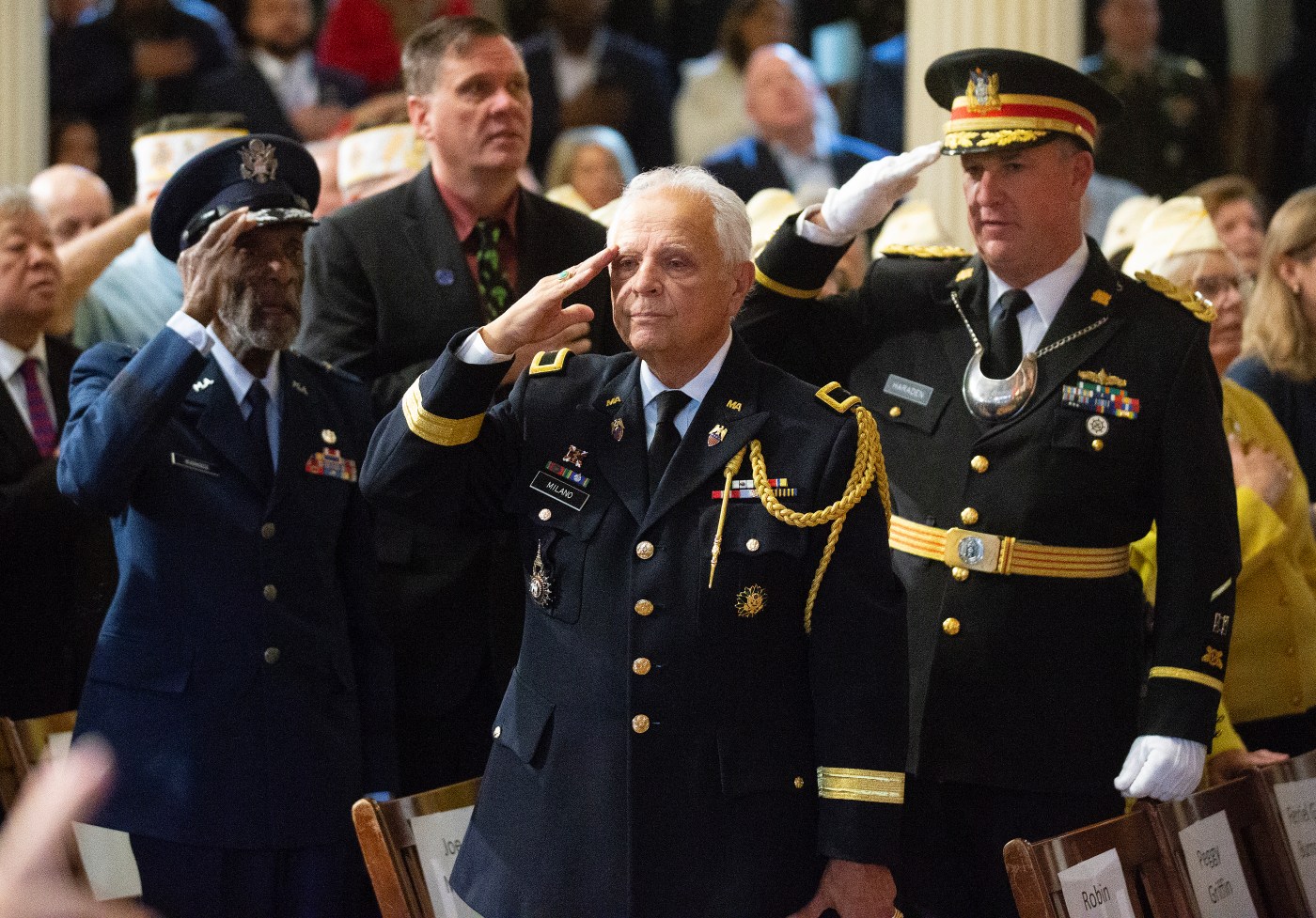
‘HERO Act’ veterans services bill approved by state House
With Memorial Day just around the corner, it seems somewhat fitting that lawmakers finally took up and passed a veteran’s services bill first offered by the governor toward the end of last year.
An Act Honoring, Empowering and Recognizing Our Servicemembers and Veterans, or the HERO Act, was sent to the House ahead of Veteran’s Day last November, and heads now to the Senate with most of the governor’s provisions intact.
House Rep. Rita Mendes, of Brockton, said the bill is the most comprehensive piece of veterans legislation the state has considered in more than 20 years.
Mendes, delivering her inaugural address to the House, said her immigrant family couldn’t boast of any military service, but explained she would support the bill because she recognized the benefit brought to her life and community by those who choose to serve.
“The reality is that veterans and servicemen are willing to sacrifice their lives for all current — and future –Americans,” she said. “This is a nation where we all share the same protections, the same freedoms, despite our legal status and our identities. That is the legacy of our veterans. The brave men and women who chose to answer the call to serve this nation, and to preserve liberty for current and future generations.”
The HERO Act includes more than a dozen different spending and policy initiatives covering modernization of state veterans services, commitments to “inclusivity and greater representation,” and expansion of state veterans benefits.
The act would up the annuity provided to disabled Massachusetts veterans from $2,000 to $2,500, provide reimbursement for veterans receiving state services who seek behavioral health treatment, and propose a $2,500 tax credit for businesses who hire disabled or low-income veterans.
It would also up the state employee service buyback plan from 180 days maximum to 10 years, allowing retroactive application for state workers who might benefit. The act would help protect veterans receiving state benefits — also known as Chapter 115 benefits — from losing those entitlements when their federal benefits change.
The bill would also establish a working group to study the “health benefits of psychedelics as treatment for veterans suffering from physical or mental health disorders related to their service.”
It would allow municipalities to double their veterans property tax exemption, and remove the RMV’s fee for veterans license plates, among other provisions.
The governor’s proposal for a pilot program aimed at covering the cost of IVF treatment for same-sex veteran couples was not included in the House version of the bill. According to House lawmakers, that provision was removed because the Department of Veterans Affairs updated their policies to begin covering the cost of that treatment in March.
Along with more than 50 other amendments, House lawmakers added a provision that would require the state to notify military leadership in the event a service member is charged with child neglect, and another requiring several state bridges and landmarks to be lit in gold on Memorial Day in honor of Gold Star families.


